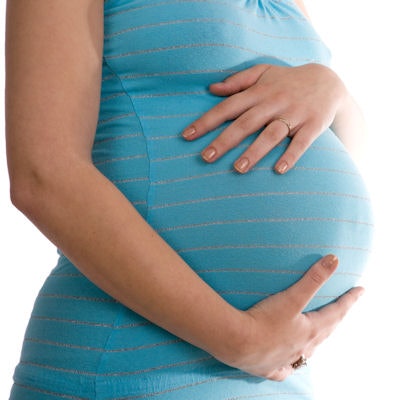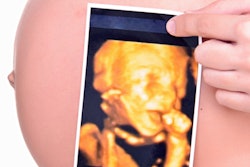
Most breast cancer survivors who get pregnant have good outcomes and deliver healthy babies, according to research presented at the 2020 San Antonio Breast Cancer Symposium. However, survivors are at an increased risk for preterm labor and delivering babies with a low birth weight.
The findings were part of a large meta-analysis of breast cancer survivors of childbearing age. For corresponding author Dr. Matteo Lambertini, PhD, of the University of Genova - IRCCS Policlinico San Martino Hospital in Italy, they represent a step toward helping women in their reproductive years return to a normal life after breast cancer therapy.
As women opt to have children later in life, it is becoming increasingly common for patients to be diagnosed with breast cancer before having a child. At the same time, newer anticancer therapies that have successfully reduced cancer mortality rates can also have potentially damaging effects on fertility and future family planning.
These trends prompted the researchers to question the safety of pregnancy in young women with a prior diagnosis of breast cancer -- especially those who underwent newer treatment options. The researchers looked for answers by conducting a systematic literature review of 39 studies.
Compared with the general population, the 114,573 breast cancer survivors in the review had a 50% higher risk of delivering a baby with low birth weight and a 16% higher risk of having a baby small for gestational age. In addition, survivors had a 45% higher risk of preterm labor and 14% higher risk of requiring a caesarean section.
Despite these increased risks, the authors found no significant increased risk of congenital defects or other pregnancy or delivery complications. The increased risks of low birth weight and small gestational age also appeared primarily in women treated with chemotherapy.
Furthermore, pregnancy did not appear to negatively affect other cancer-related outcomes. In fact, former breast cancer patients who got pregnant had a 44% reduced risk of death compared with those who did not have a pregnancy after treatment. Pregnant survivors also had a 27% lower risk of disease recurrence.
In addition, pregnancy appeared safe for a variety of breast cancer survivors, including women with varying BRCA statuses, nodal statuses, treatment types, and lengths of time between breast cancer diagnosis and pregnancy.
Because women who got pregnant may be healthier, the authors tried to control for the "healthy mother effect," which posits that women who feel well and have good prognoses are the most likely to try to conceive. But even after adjusting for this phenomenon, women who got pregnant still had a 48% reduced risk of death and a 26% reduced risk of disease recurrence in the analysis.
Despite the generally good pregnancy outcomes, breast cancer survivors had a 60% lower chance of having a pregnancy than the general population. However, the reason for this statistic is unclear. Because the analysis did not look at the number of women who tried to conceive, it's possible that breast cancer survivors may be less likely to try to become pregnant later.


















